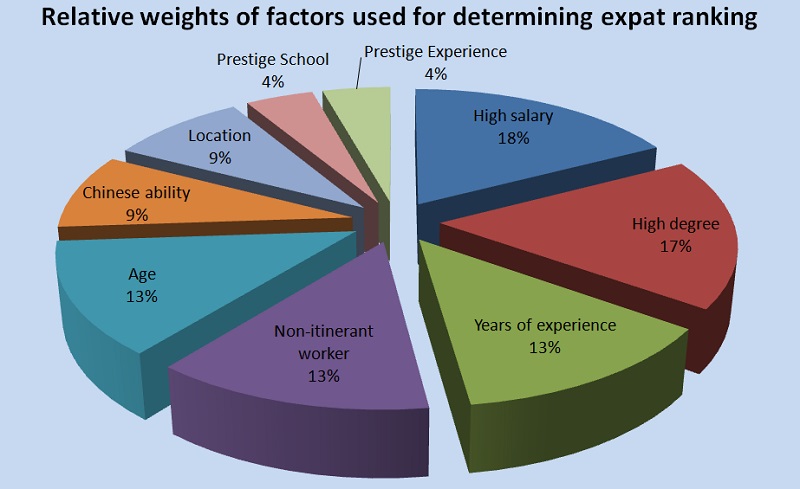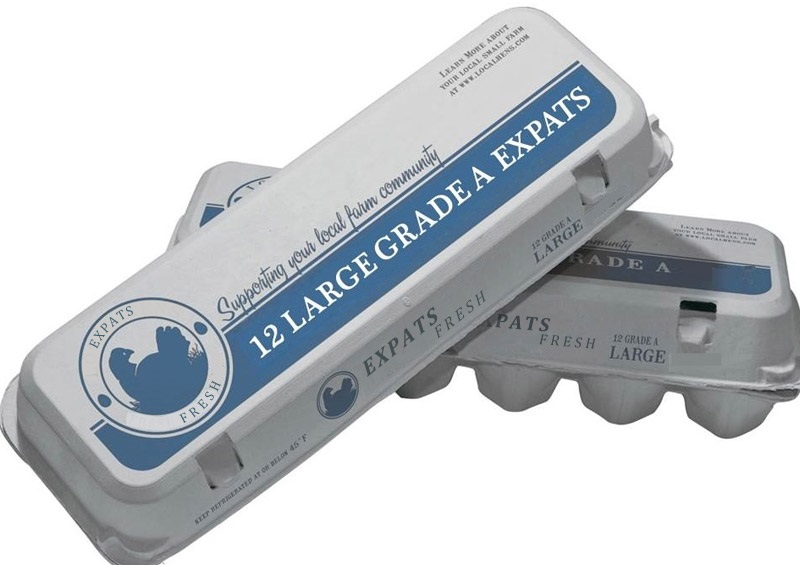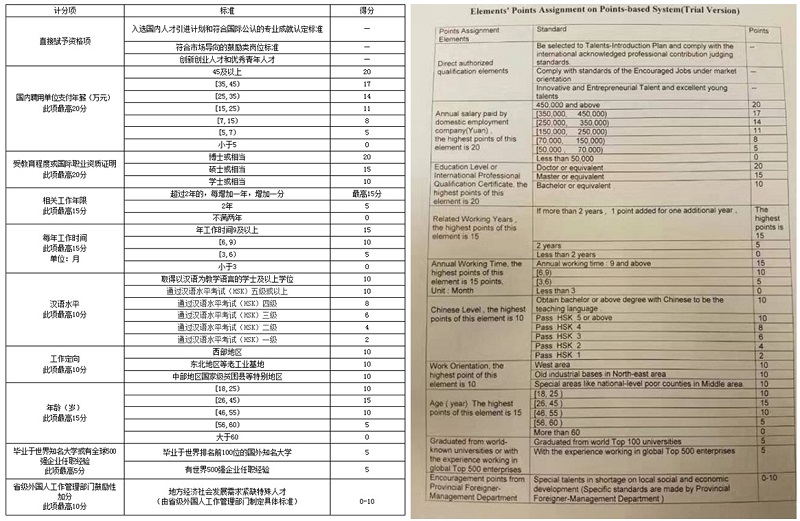Find Your Expat Ranking With Our Work Permit Scoring System Quiz
Earlier this fall we informed our readers about China's new work permitting regulations that will grade foreigners based on a points system, and offered up our own speculative scoring system.
Yesterday a discussion on Reddit linked to a Shanghai government website that contains a draft of the actual points system that will ultimately determine which of us are prime cuts and which are merely chopped liver.
We have no confirmation as to whether this is the "real deal," but its appearance on the Shanghai Municipal Human Resources and Social Security Bureau's website lends it some serious credibility.
We've taken that data and made a handy quiz to determine whether you are an A, B or C ... click now find your grade!
Though we reported in September that the system is due to be launched on Nov. 1 in many foreigner-rife locales like Beijing, Beijinger parent company True Run Media, which has foreign employees on staff, has spoken to the Labor Bureau about the matter today, and a representative said they had yet to be told of any imminent changes. This leads us to conclude that the likelihood of this new system being fully implemented by next week is quite low. However, it does appear to be coming down the pipeline eventually: one Reddit user recently commented: "To assure you all that this is actually happening soon, here's a picture from Shijiazhuang of a training class in implementing the system".
As previously reported, expats will be graded into three categories, with the highest grade (A) being reserved for top-ranking talent; B for professional talent and C for unskilled or service industry workers.
The points system factors in the applicants' salaries, educational backgrounds, the amount of time that they have worked in China, their Mandarin proficiency, their age and their location. Those who score 85 and above will get receive an A grade, while B will be given to anyone 60 and over, with C being allocated to anyone below that.
For those not into online quizzes as the one above, here is the original text document and a rough English translation:
Here is a text version of the English that appears in the document above:
What is your annual salary?
RMB 450,000 and above (20 points)
350k-450k (17 points)
250k-350k (14 points)
150k-250k (11 points)
70k-150k (8 points)
50k-70k (5 points)
Less than 50,000 (0 points)
What is your education? ( points)
Doctorate or equivalent (20 points)
Masters or equivalent (15 points)
Bachelor or equivalent (10 points)
No bachelors (0 points)
How many years of experience do you have in a related field?
12 or more years (15 points)
11 years (14 points)
10 years (13 points)
9 years (12 points)
8 years (11 points)
7 years (10 points)
6 years (9 points)
5 years (8 points)
4 years (7 points)
3 years (6 points)
2 years (5 points)
Less than 2 (0 points)
How many months out of the year are you employed?
9 months or more (15 points)
6 to 9 months (10 points)
3 to 6 months (5 points)
Less than 3 months (0 points)
What is your Chinese level?
HSK 5, HSK 6 or degree from a university that uses Chinese as its teaching language (10 points)
HSK 4 (8 points)
HSK 3 (6 points)
HSK 2 (4 points)
HSK 1 (2 points)
No HSK level passed (0 points)
Do you work in any of the following areas: Northeast old industrial bases, far west China, special areas such as poor counties in central China?
Yes (10 points)
No (0 points)
How old are you?
18-25 (10 points)
26-45 (15 points)
46-55 (10 points)
56-60 (6 points)
More than 60 (0 points)
Did you graduate from a Top 100 world university?
Yes (5 points)
No (0 points)
Do you have work experience in a global Top 500 enterprise?
Yes (5 points)
No (0 points)
Note: Not taken into consideration are up to 10 additional points that can be given as "encouragement points" by provincial level governments that determine they have a shortage of your skill.

– Additional reporting by Scott Devoy Su and Steven Schwankert
More stories by this author here.
Email: kylemullin@truerun.com
Twitter: @MulKyle
WeChat: 13263495040
Photos: the Beijinger, Reddit, Imgur
Related stories :
Comments
New comments are displayed first.Comments
![]() admin
Submitted by Guest on Thu, 11/03/2016 - 09:46 Permalink
admin
Submitted by Guest on Thu, 11/03/2016 - 09:46 Permalink
Re: Find Your Expat Ranking With Our Work Permit Scoring...
After over 2,000 tests taken, the breakdown is:
15% Grade A
61% Grade B
24% Grade C
![]() BeijingAnna
Submitted by Guest on Wed, 11/02/2016 - 17:45 Permalink
BeijingAnna
Submitted by Guest on Wed, 11/02/2016 - 17:45 Permalink
Re: Find Your Expat Ranking With Our Work Permit Scoring...
@PatrickLi:
In China, rulemaking (bumen guizhang) is indeed the task of agencies. In most cases, these agencies do publish a draft and ask the public for comments. See here: http://zqyj.chinalaw.gov.cn/index
The Renda does not produce rules, but laws (falü). So the agency rules are not reviewed by the NPC. Like agency rules, laws in China are also published for public comments.
The question is whether the new point system will be part of a law or whether they will be State Council administrative rules or departmental rules.
If the new system becomes part of a new/amended law or new/amended State Council/departmental rules, it is not unlikely that they will be published for public comments. So your conclusion that this is "dangerously not-China" is not so accurate.
![]() Tim USA
Submitted by Guest on Wed, 11/02/2016 - 15:08 Permalink
Tim USA
Submitted by Guest on Wed, 11/02/2016 - 15:08 Permalink
Re: Find Your Expat Ranking With Our Work Permit Scoring...
At this point, I score a conservative 81,,, but with some indirect working with the government, military and plice, maybe I can be a very low A.... who knows,,, seems kind of stupid some of the criteria, especially the northeast one,,, only a few of the questions relate to actual worth in the practicing field...
![]() admin
Submitted by Guest on Wed, 11/02/2016 - 14:43 Permalink
admin
Submitted by Guest on Wed, 11/02/2016 - 14:43 Permalink
Re: Find Your Expat Ranking With Our Work Permit Scoring...
I would how married folks to Chinese will affect this test, If any affect at all. It should matter
Spouses are not legally entitled to work here, so no special dispensation is offered to someone married to a Chinese person
![]() PatrickLi
Submitted by Guest on Fri, 10/28/2016 - 07:25 Permalink
PatrickLi
Submitted by Guest on Fri, 10/28/2016 - 07:25 Permalink
Re: Find Your Expat Ranking With Our Work Permit Scoring...
It seems to me that the people who came up with this grade system didn't have a concrete idea in their mind in terms of what they wanted to achieve with this new rule. It's not clear if they are trying to get rid of foreign drug dealers and illegal workers, or they are trying to disencourage non-elite foreigners who want to work in China bona fide. If they want to do the first, they probably need to focus on the enforcement of the current immigration law rather than imposing a higher standard of the qualification of foreign workers.
I recently learned that Chinese laws on agency rulemaking was almost completely borrowed from the US in the early 1980s when the political atmosphere was in a brief liberal hiatus. In theory, a new rule should represent the will of the Ren Da/Congress, be subject to comments, and give clear, coherent explanation of what the rule tries to achieve, but I guess this way of thinking is so dangerously "not-China."
![]() admin
Submitted by Guest on Fri, 10/28/2016 - 06:02 Permalink
admin
Submitted by Guest on Fri, 10/28/2016 - 06:02 Permalink
Re: Find Your Expat Ranking With Our Work Permit Scoring...
After over 500 tests taken, the breakdown is:
16% Grade A
62% Grade B
22% Grade C
Validate your mobile phone number to post comments.








